July and August in KDE PIM
Here's our bi-monthly update from KDE's personal information management applications team. This report covers progress made in July and August 2024.
Since the last report, 32 people have contributed over 1300 changes to the KDE PIM code base. We also released a new version of the KDE PIM Suite in August with the Gear release
Akademy
The KDE PIM team will be at Akademy from the 7th to the 12th of September in Würzburg (Germany). We will host again a PIM BoF on Monday from 14h to 16h.
Milestones
We have decided to plan and track our work in milestones. Milestones represent concrete goals with clear definitions of what we understand as done, and be achievable within a reasonable time frame. Each milestone is then split into smaller bite-sized tasks that can be worked on independently.
This helps us prioritize important work, make our progress more visible and, most importantly, make it easier for people to get excited about what we are working on. New contributors will also be able to pick a well-defined task and start contributing to PIM.
You can see the milestones on our Gitlab board. If anything there catches your eye and you would like to help, reach out to us on the #kontact:kde.org Matrix channel!
Retiring KJots and KNotes
We made some progress on this front and KNotes was not part of the 24.08 release. The repositories for KNotes and KJots are now archived and the remaining bits related to the Akonadi Note support were removed from KOrganizer, Calendar Support, KDE PIM Runtime, and Event Views.
Moving Protocol Implementations to KDE Frameworks
Volker continued to cleanup and optimize KMime in preparation for moving it to the KDE Frameworks. KMime is the library used to parse and write emails.
Itinerary
Our travel assistant app Itinerary got a new seat information display in the timeline, integration with the Träwelling check-in service, more use of Wikidata/Wikimedia online content and a pretty new website. See its own bi-monthly update for more details.
Kleopatra
Over the last two months the smart card views for the different types of supported smart cards got a facelift to make them look more unified and less crowded (T7018).
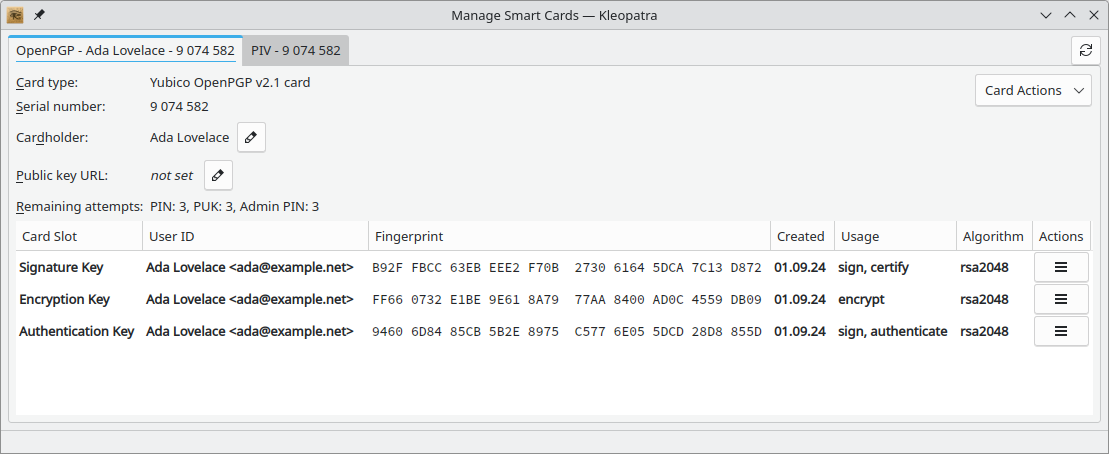
Kleopatra now supports disabling OpenPGP certificates (T7216). This is sometimes useful to prevent accidentally using a certificate for encryption.
We improved the usability in
- signing and encryption (T6485, T7183, T7236),
- the list of certifications that now only shows the relevant ones (T7231),
- the certificate group configuration (T6966),
- changing the expiration of subkeys (T7198, T7215).
Akregator
Akregator is the RSS feed reader integrated into Kontact. Laurent reimplemented the filter bar to avoid multiple clicks and it is now similar to the one from Thunderbird.
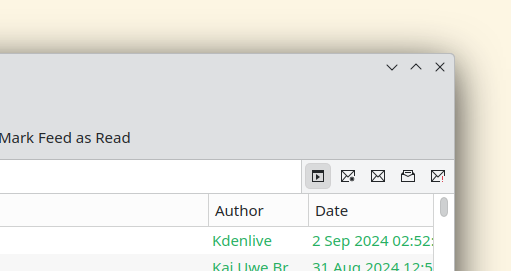
Akregator now supports Plasma Activities so you can select which feeds are visible depending on the activity you are in. Similar functionalities are planned for KMail, KOrganizer and KAddressBook.
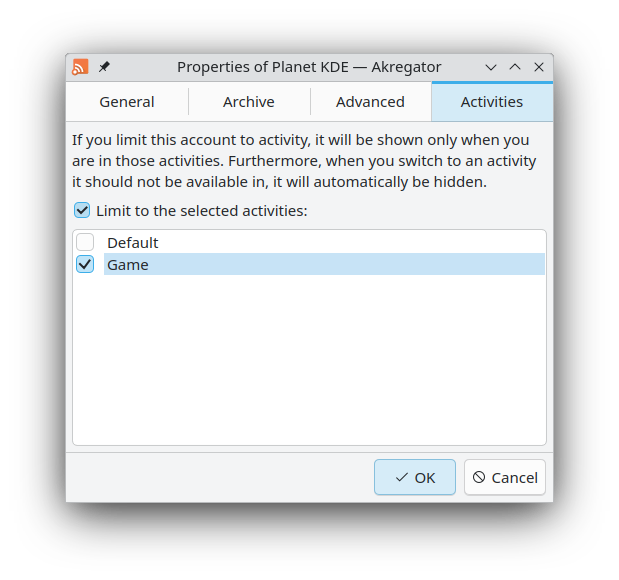
Finally, Akregator now has a What's New dialog showing the changes from the last version.
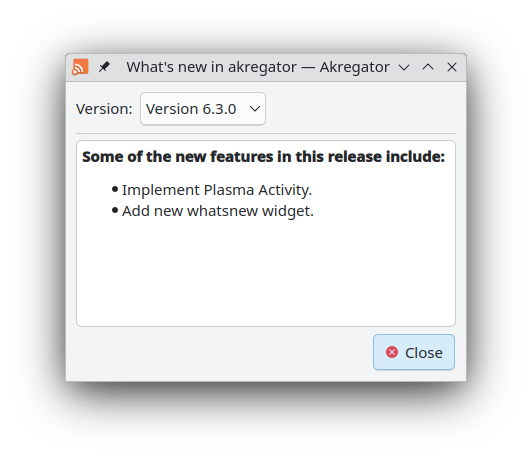
KMail
KMail now uses less memory by only loading some widgets when needed.
MimeTreeParser/Merkuro
We have unified the verification message for signed messages between Kleopatra, KMail and Merkuro by moving the implementation to LibKleo.
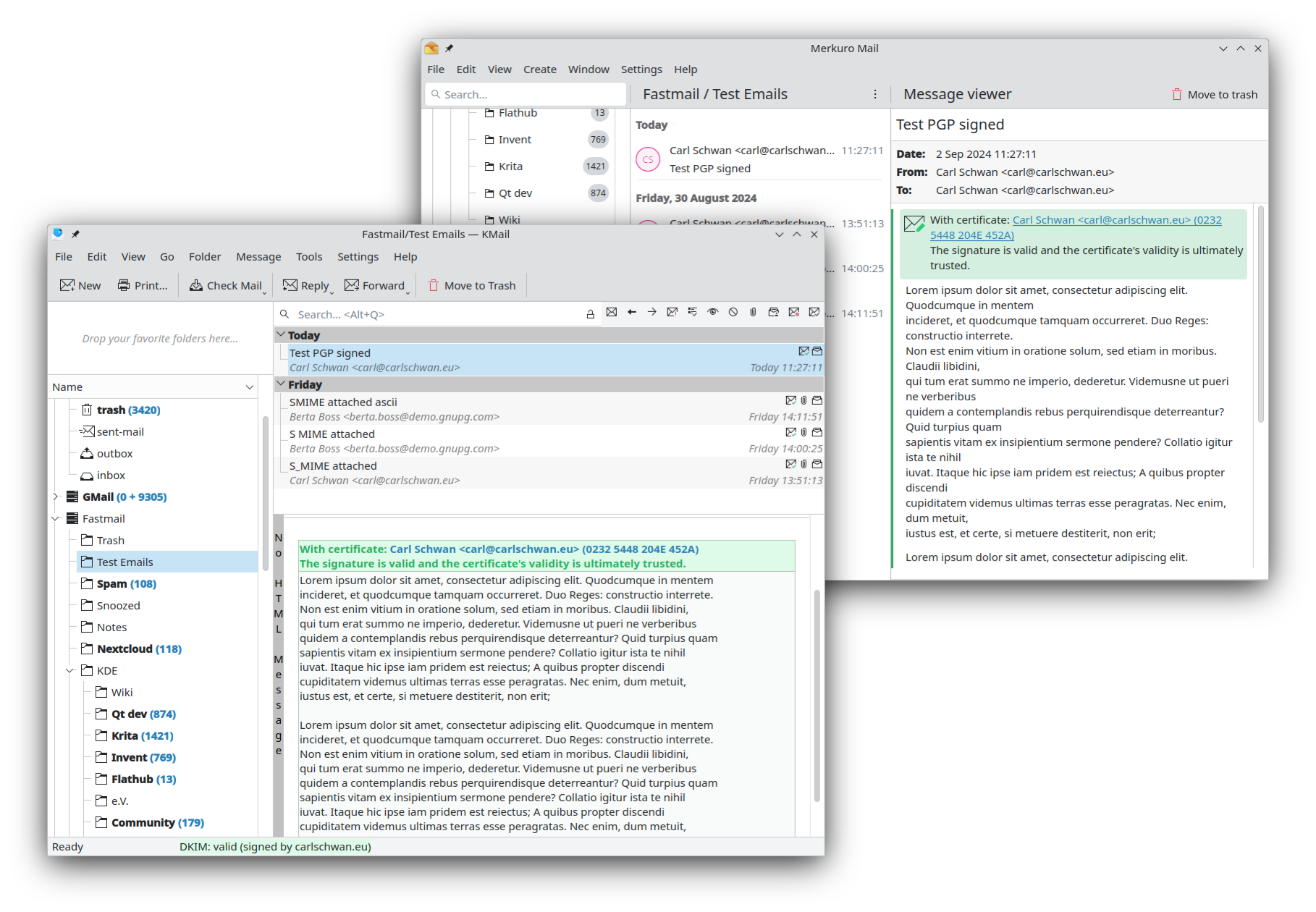
KAlarm
We replaced the libcanberra audio backend with VLC, since libcanberra is unmaintained and does not recognise recent audio formats. There is also the option for distributions to use MPV as audio backend.